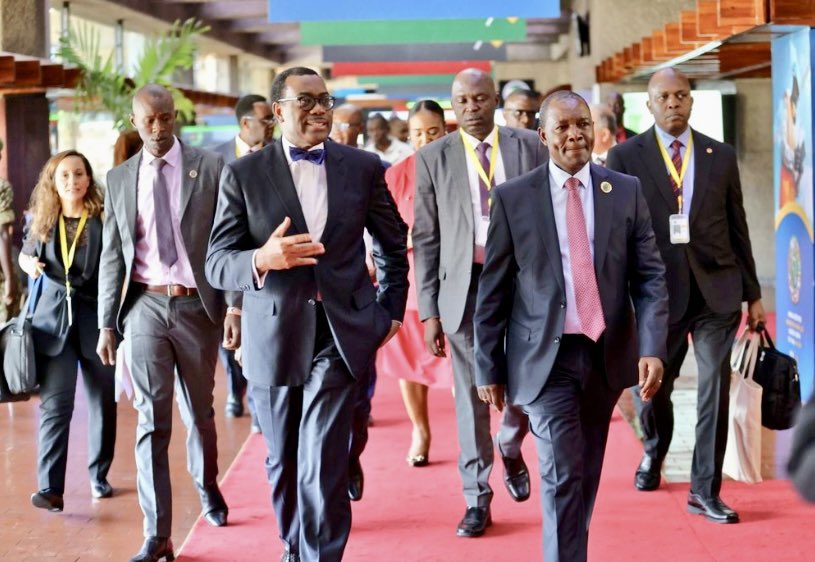The African Development Bank (AfDB) has challenged global financiers to reform their financial systems to support the continent in its growth transformation.
Speaking at the AfDB Annual Meetings 2024 in Nairobi, the AfDB President Dr Akinwumi Adesina said the current global financial architecture as set up has left Africa at a disadvantage amid the glaring funding gaps in for infrastructure development, food security, energy and climate change.
“It’s not only the architecture that needs to change, the people in the architecture also need to change. We need to have a way of working together collaboratively, work creatively and effectively to deliver great results,” said Dr Adesina.
According to the bank poor ratings and credit downgrades placed on African countries sovereign bonds have had higher interest rates compared to their counterparts in other markets.
For instance the bank says in 2021, African sovereign Eurobonds were issued with yields above 5pc and, in 40pc of the cases, they exceeded 8pc.
“In contrast, the average sovereign bond yield for advanced economies was 1.1pc and 4.9pc for emerging market economies. As a result, it has been estimated that African countries are paying 500pc more in interest when borrowing on international capital markets compared to rates that could be obtained with borrowing from the World Bank,” said the bank.
As a result of the COVID-19 pandemic, Russia-Ukraine war and the tightening of the global monetary conditions African countries have been left to battle inflation and currency depreciations which have further increased their debt burden.
“There needs to be a fairer assessment of Africa’s risk because United Nations Development Programme shows that if Africa’s risks are properly and fairly estimates, African countries will save $75b a year in debt service it has,” said Dr Adesina while addressing the press at the annual meetings in Nairobi Kenya.
This year, African countries are expected to pay at least $74 billion in debt service, up from$S$17 billion in 2010, mainly due to tighter global financial conditions.
By Fredrick Azelwa.
